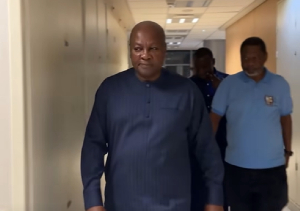Discussants at a day’s multi-stakeholder forum on the proposed changes to the petroleum revenue management in Tamale have urged Parliament to effectively scrutinize all contracts in Ghana’s oil and gas sector.
That, according to them, would help Parliamentarians to promote the interest of the citizenry who elected them.
Participants noted that the Public Interest and Accountability Committee (PIAC) was under resourced, making it difficult to execute its mandate.
They therefore appealed to government, to as a matter of urgency, resource and empower it.
Dr. Ismael Ackah, Advisor to the Africa Centre for Energy Policy (ACEP), in a remark, also called on government and Parliament to review some portions of the petroleum revenue management law to promote efficiency and transparency in the utilization of the country’s oil resources.
According to him, the Petroleum Revenue Management Law Act 815, 2011), which was passed in March 2011 was to clarify some areas and provide a means of promoting transparency and good governance in the oil and gas industry.
He said the amendments had not achieved their desired objectives four years after implementation.
He therefore proposed a comprehensive funding for the Public Interest and Accountability Committee (PIAC) under the “exceptional transfer clause” to address its funding challenge since the current law only restricted funding to the payment of allowances to members of the committee.
Dr. Ackah stated that his outfit was not in support of the prioritization of the distribution of revenues to GNPC at the expense of the national budget as captured in Section 16 of the law.
He said GNPC should be able raise its own capital subject to the approval of Parliament.
Dr. Ackah further said the proposed amendment 16(14) will empower GNPC to undertake critical projects, as well as maintain their core mandate of protecting GNPC’s share of revenues to meet their obligations.
On the stabilization fund, he proposed a moving cap on the Ghana Stabilization Fund to simultaneously achieve the objective of the Fund and make transfers to the Contingency Fund and Debt Service Accounts.
He called on government to prioritize the development of infrastructure as required by law to avoid duplication of the Ghana Infrastructure Investment Fund (GIIF) and the ABFA, which required a minimum of 70 percent of the ABFA to be applied to capital infrastructure projects.
The Director of Programmes and Resource Mobilisation of ACEP, Benjamin Boakye, earlier in his welcome address, said the lack of knowledge and information in the oil and gas sector had negatively affected the development of the country.
Business News of Thursday, 11 December 2014
Source: Daily Guide













